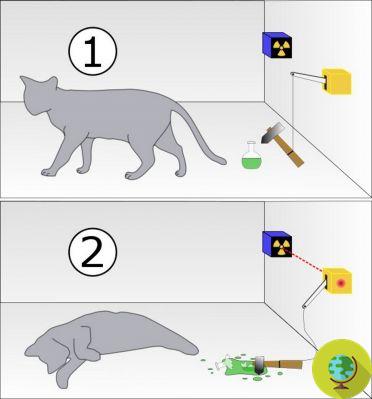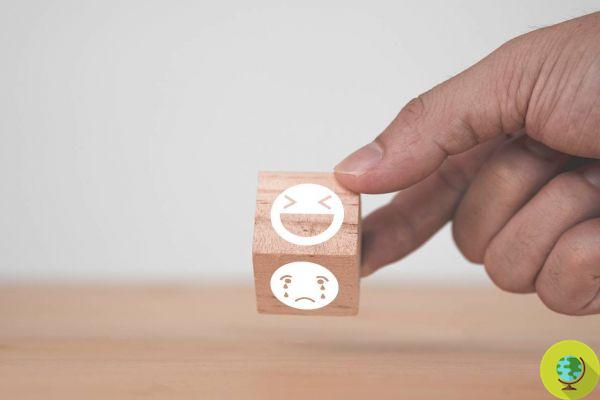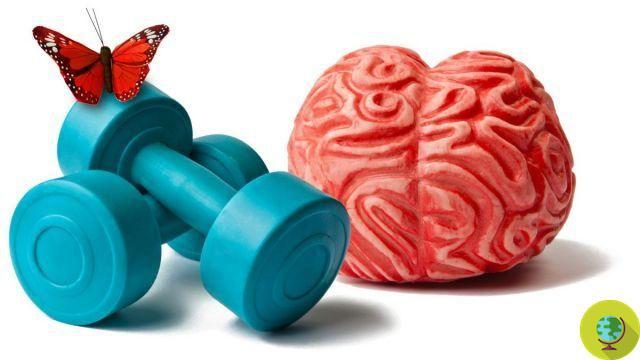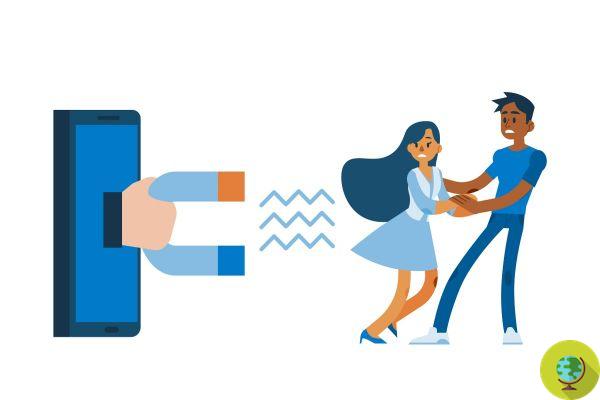
10 behaviors that ensure unhappiness
Don't keep the avocado like this: it is dangerous 10 behaviors that ensure constant unhappinessPursuing the aspiration to "always be happy" is a good way to not have a fulfilling and joyful life (you are happy as a consequence of a life lived fully by accepting the joys and sorrows, the challenges and the victories that you gradually face) . But it is equally certain that some behaviors assure us, on the contrary, a 'constant unhappiness.
Here are at least 10 that directly or indirectly build, day after day, a deep and rooted unhappiness: do you adopt them too? Behaviors to try to limit if you go in search of happiness
- Complain
Things do not go as we think, and we complain. It is a sort of "litany", sometimes even a little subdued, for everything that is wrong (and of course often one encounters inappropriate situations, which do not meet one's expectations, which are not as they should be, which do not go as expected ). The economy is not working well, the local shop is not doing things right, the neighbor is making too much noise, the prices have gone up, the bed is not well made, there is not enough time: the examples could be thousands. The real point is not the objective reasons: because even if they changed, those who complain would always find other reasons to continue to express their dissatisfaction. The tragedy is that the more you complain, the more you get into this "whining" attitude.
How is "complaining" resolved? The first step is to become aware of it (yes, because it is often something that starts automatically, without particular reflections: it becomes a way of seeing things); then stop and think what are the aspects that - really - do not like about the person, situation, thing. So think of a concrete and practical action, to solve or at least to change your approach and perception.
And, in general, learn to recognize the positive and constructive aspect, the beauty of any situation.
READ also: How to stop complaining to live better
-
Index
Avoid problems
There is a problem: I ignore it. My love life is not going well: I quit the person I'm with. I'm nervous: I'm looking for distractions. I have a delicate matter to resolve, refer. Bad strategy: not only does the "hot potato" stay there, waiting to be dealt with, and it can even burn but the "theme" remains open and discharged, it weakens personal energy.
Problems must be recognized and then addressed: one small step after another, they are solved. Furthermore, focused and determined action increases strength and self-esteem, makes you feel good. A touch of happiness, in short.
There are those who always look to others, to those who have more (at least apparently): a good career, a beautiful wife or a beautiful husband, an economic fortune and so on. And obviously they complain because, they, no, they don't have it, this or that. They no, the others yes: it is a comparison to the downside, to the lack, on one's own misfortune. In total, sterile frustration. It will be no coincidence that envy is one of the seven deadly sins.
Looking at others only makes sense if it becomes a positive stimulus to self-fulfill: instead of complaining, it is better to identify your goals and then take concrete action to get what you can actually have.
- Worrying about something that hasn't happened yet
The scenario is always a bit dramatic: this or that could happen. We live in fear, in alertness and in the future. It is not a question of healthy prudence and prevention but of an attitude, regardless of concern, which does not even allow one to stay and enjoy the present.
It goes without saying that anticipating scenarios, planning situations can be extremely useful but it is never, living and acting within a constant feeling of anxiety and fear. Not only that, as the self-fulfilling prophecy demonstrates, risks attracting or favoring - with one's behavior - even feared situations but does not allow effective action.
- Getting overwhelmed by problems
Sometimes we think that our problems are bigger than us, they are "too much". In very rare cases this is the case. We often believe that there are people who, unlike us, they - lucky! - have no major headaches. This is almost never the case.
Life only confronts us with challenges that we can somehow face. Of course, sometimes it is necessary to bring out the "attributes", to make a willful and imaginative effort: the problems also serve this purpose. Depending on the use we make of them (constructive or whiny) they can become an opportunity for growth, an experience useful for life and for the soul.
There is a deep and deep-rooted contradiction that causes us to complain about doing things we don't like and keep doing them. We remain in relationships that don't work, in houses that don't correspond to us, in jobs that don't gratify.
If something does not "belong to you", it is no longer part of you, it does not represent you, it does not make you vibrate, it cannot help you towards happiness. There are two ways, and not necessarily in opposition: to change. Start doing things you really like: at least one, for starters. Don't let others tell you what's right for us. And then - in the meantime, while waiting to take the necessary steps for change - focus on the positive aspects, which are always there, even in situations we don't like.
Friendships that have become shaky, superficial or compromised professional relationships, frustrating or disappointing acquaintances, sometimes even what was once a true love: you can't get out of there. They are safe "places", comfort zones. At least apparently.
Obviously, it is not a question of throwing away every relationship that is not as brilliant, useful, satisfying as it once was; people change, relationships too: by the will of one or both they can increase or decrease but still maintain a level of satisfaction, of meaning. Sometimes, however, the compromise is to the downside, linked only to comfort, to the lack of desire to face the situation and clarify. But, in the long run, it's not a happy choice.
READ also: The signs that you are no longer happy in your relationship
When a friend, partner or child does not correspond to one's wishes, the desire may arise to want to change them (for love, of course): strategies, behaviors are adopted, an attempt is made to adequately "train" them. But no one can change another person; the transformation, true, authentic, starts only from an inner motivation (which of course can be supported and honored by others): it is a personal choice.
Acting with the expectation that others will say, do, change according to our wishes is therefore a harbinger of unhappiness. However, this awareness can also be treasured in another way: by reasoning on the motivation of one's desire to change others. Normally, it hides a desire for change, even a personal one: and on this, on the other hand, we can work well!
Doing or saying things pleasing to those around us, only to receive approval, because his "position" or his role requires it, in short, to please certain people in this or that environment, is - in the long run - one infinite and almost always useless effort. First of all because - as the story of the farmer, the donkey and the son teaches well - everyone has his own way of seeing things and if you are approved by someone there will surely be someone else who will have, instead, things to say. . And then because in doing so one does not follow one's nature, one's feelings: and this yes, in the long run, leads to a fall in self-esteem and unhappiness.
The feedback of others can be important, they must also be taken into consideration of course, but by assigning them the right, relative, weight. It is important to live following your Self and your goals. And you can't necessarily always please everyone.
Like a mussel on a rock: to remain attached to something, considering it firm and immutable. Whether it's a relationship, an idea, a situation, a status, a goal: nothing is final, nothing is forever, nothing is immobile. Everything changes, is transformed. You need flexibility. It does not mean having no intentions, will, goals to reach but learning to flow with life and its movements.
Being aware, as always, helps: it makes change possible. Having the courage to be - and act accordingly - what one is, while respecting others: this is enough to make one's life full and satisfying. Happiness, at that point, becomes a simple "of which".
Anna Maria Cebrelli


























